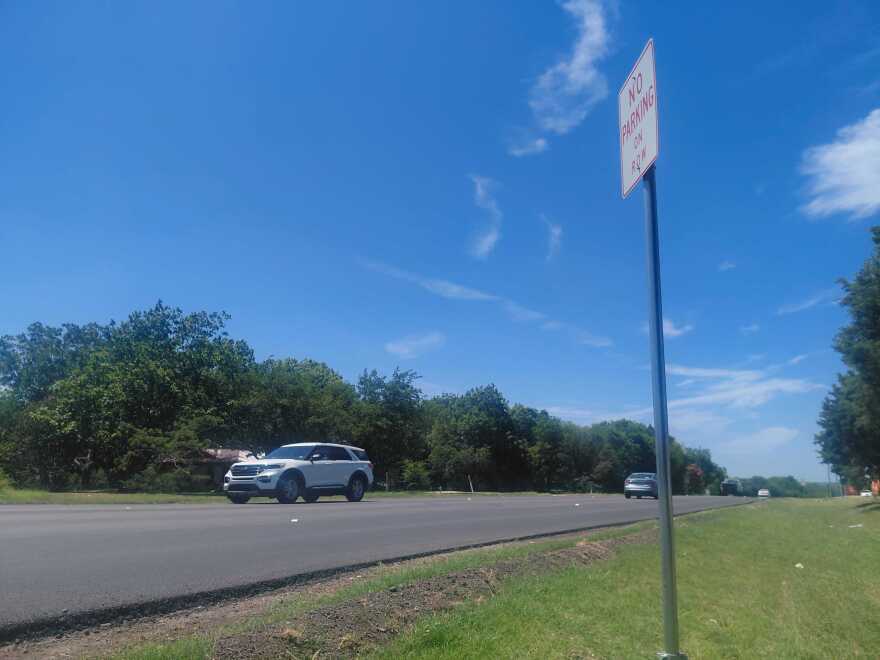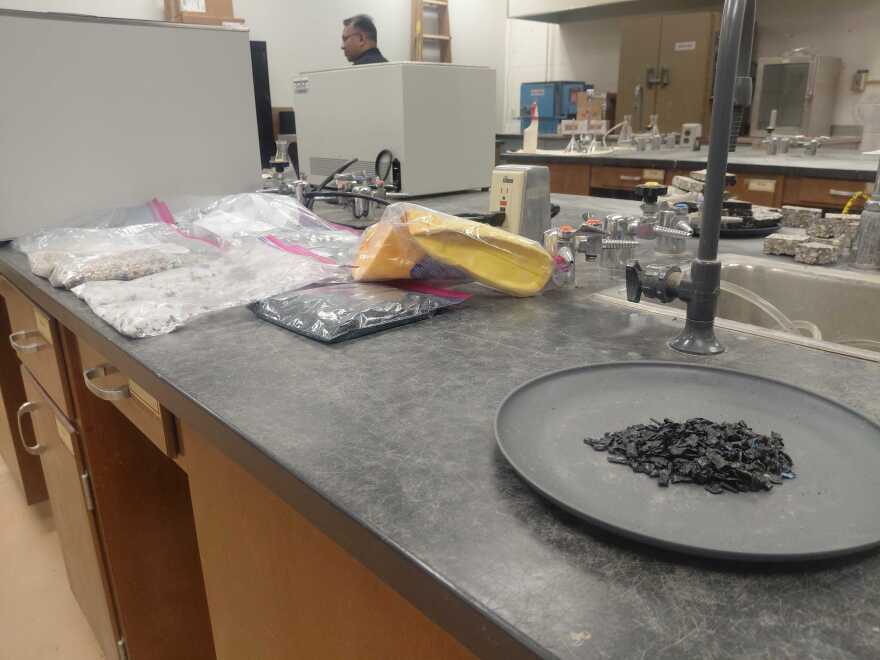To change the world “one road at a time” is what University of Texas at Arlington engineering professor Sahadat Hossain and his students plan to do.
Hossain and the team have been developing a plastic-infused asphalt mix for road construction he said improves roads — and recycles plastic that would have otherwise gone to waste.
“We found out if we add plastic to the asphalt road, the road becomes more durable,” Hossain said. “The rutting and cracking are less. And the performance is much better.”

This spring, the team replaced the top two inches of a section of North Goliad Street in Rockwall with a mix of asphalt and shredded plastic. It’s the first highway in Texas paved with the unique asphalt. Over the course of a single night, the team mixed the asphalt, brought it to the site and finished by 6 a.m.
Hossain, who is also the director of Solid Waste Institute for Sustainability at UTA, is not new to this work.
In 2019 he went to the Texas Department of Transportation’s Dallas district and asked to do a feasibility study. After running some tests, he got the green light to pilot the asphalt.
Hossain and his students built the first plastic-infused road on the UTA campus in 2023, patching a one-mile section over two parking lots. Doctoral student Ishraq Faruk said they used approximately 3.5 tons of plastic waste to complete the project.
“That's almost estimated to be around 15 garbage trucks full of plastics,” he said.
The 3,500-foot-long section of road in Rockwall used about 3.5 tons of plastic.
“If we had constructed a mile-long road it would have utilized like more than five tons of waste plastics, which is huge in points of diversion from landfills,” Faruk said.
Plastic bags are dangerous because they can’t be recycled, Hossain said. He remembers driving along Highway 157 next to an Arlington landfill when a plastic bag hit his car.
“Nobody tries to recycle them,” he said. “They're all sent back to the landfill. We found a way to reuse that one-time-used plastic bag.”

Hossain and his team will monitor the road in Rockwall in the coming years, and plan to expand the pilot to other roads in Texas.
In the fall, they will work on a road project in Fort Worth.
“Because TXDOT is big, any project that is done in Texas successfully, other states usually follow Texas,” he said. “We are not going to be limited to Texas. We are going to expand nationally.”
The Texas Department of Transportation said the project could “drive a more sustainable future.”
“This is taking one problem, which is plastic filling up our landfills, and using it to solve another problem by providing longer-lasting roads,” Brian Barth, deputy executive director at TxDOT, said in a statement.
Hossain and his students have also worked on road construction in Dahka, Bangladesh, and several of his students spent a few months there to work on and oversee the project.
“We've been monitoring both UTA parking lot and Dhaka plastic road, and the results are amazing,” Hossain said. “In two years, we have absolutely no issues.”
Groups from as far away as Ethiopia, Nigeria and Saudia Arabia have reached out.
“I think what we're doing here is, you know, we're integrating engineering innovation with sustainability,” said student and team member Garima Maharjan. “And usually when we're talking about innovations, we neglect the sustainability part, so integrating both of these, it's a great job and I love to be a part of it.”
Priscilla Rice is KERA’s communities reporter. Got a tip? Email her at price@kera.org.
KERA News is made possible through the generosity of our members. If you find this reporting valuable, consider making a tax-deductible gift today. Thank you.




